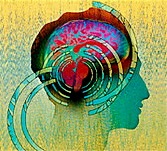Autonomous
- Date: circa 1623
Definitions
- 1 : the quality or state of being self-governing; especially : the right of self-government
- 2 : self-directing freedom and especially moral independence
- 3 : a self-governing state
Description
Autonomy (Ancient Greek: αὐτονομία autonomia from αὐτόνομος autonomos from αὐτο- auto- "self" + νόμος nomos, "law" "one who gives oneself his/her own law") is a concept found in moral, political, and bioethical philosophy. Within these contexts, it refers to the capacity of a rational individual to make an informed, un-coerced decision. In moral and political philosophy, autonomy is often used as the basis for determining moral respectibility for one's actions. One of the best known philosophical theories of autonomy was developed by Kant. In medicine, respect for the autonomy of patients is an important goal, though it can conflict with a competing ethical principle, namely beneficence. Politically, it is also used to refer to the self-governing of a people.
